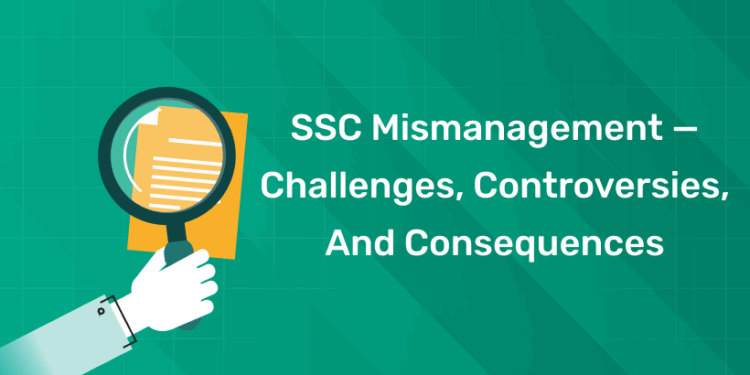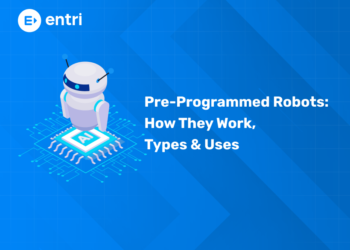Table of Contents
Introduction
In early August, the Staff Selection Commission (SSC) — the central body responsible for recruiting millions of candidates to Group B and C posts across India — was plunged into one of the most serious credibility crises in recent years. Exams conducted as part of the Selection Post Phase XIII cycle (with several overlapping SSC windows around late July–early August) were beset by technical failures, abrupt cancellations, questionable centre allocations and furious protests by aspirants and trainers. The episode exposed weaknesses in exam administration, strained public trust, and forced urgent damage control by the Commission.
Technical and Logistical Failures
1: In a certain code language, ‘ROK’ is written as ‘44’ and ‘MIG’ is written as ‘29’. What will be the code for ‘TAL’ in that code language?
What went wrong is not the story of a single error but a cascade of operational failures. Candidates reported server crashes, software glitches that logged them out mid-test, and biometric failures at centres that prevented entry or caused abrupt terminations of sessions. Several shifts were cancelled or declared void at short notice, leaving tens of thousands of candidates uncertain about whether their attempt would count or be rescheduled. In response, SSC announced special re-examinations for affected candidates — a remedial step that itself raised logistical challenges about fairness, scheduling and centre suitability.
Vendor Management and Poor Planning
Logistics and vendor management emerged as a central theme. SSC’s move to outsource large parts of the exam infrastructure to third-party vendors and testing platforms is standard practice, but the contract oversight and vendor readiness came under scrutiny after repeated, simultaneous failures at multiple locations. Critics pointed to poor contingency planning: backup servers were apparently insufficient, centre staff were sometimes inadequately trained, and communication channels to inform candidates of cancellations or re-scheduling were fractious and inconsistent. For aspirants who travel long distances to exam centres, sudden cancellation means lost travel expenses and time — costs that the Commission’s reassurance could not immediately recover.
Procedural Fairness and Leak Allegations
Beyond technical problems, allegations of procedural unfairness and leaks inflamed tensions. On social media and in ground protests, aspirants demanded transparency around answer keys, score validation and the role of private contractors in setting and distributing question papers. While SSC officials publicly denied systemic paper-leak claims, they simultaneously faced intense pressure to explain discrepancies and to detail measures that would restore confidence. The chairman’s public statements admitted mismanagement in parts while rejecting any blanket charge that the entire exercise was compromised — a stance that did not satisfy many affected candidates.
Ace your SSC Preparation with Expert Mentors! Get Free Demo Classes Here!
Protests and Public Outcry
The human reaction was quick and strong. Aspirants, trainers, and student groups protested in Delhi at Jantar Mantar and Ramlila Maidan, while similar protests occurred in other states. Hashtags like #SSCMisManagement trended online, spreading videos and personal stories. Many protesters clashed with police, and petitions reached the courts asking for cancellation of faulty exams or independent probes. Students were demanding not just re-exams but accountability from SSC.
Official Responses and Remedial Steps
Official fallout and remedial steps came in several forms. The Commission ordered re-examinations for affected shifts and said it would audit vendor performance and technical logs. It also warned candidates against sharing or circulating question-paper content, invoking the Public Examinations (Prevention of Unfair Means) Act as a deterrent for malpractice. At the same time, law enforcement agencies in some states continued probe work into alleged leaks in earlier recruitment drives, and courts were asked to intervene in petitions challenging cancellations and demanding fresh exams or independent probes. The combination of administrative fixes, legal action and policing underscored the multi-pronged impact of the crisis.
Consequences for Candidates and Institutions
The consequences extend beyond the immediate chaos. First, there is reputational damage: SSC’s credibility depends on perceived fairness and reliability; repeated failures could shift candidate preference toward other recruitment routes or heighten cynicism among aspirants. Second, administrative costs and schedule slippages burden both the Commission and candidates — re-exams and legal processes inflate budgets and delay recruitments that departments urgently need filled. Third, psychological tolls on aspirants — stress, anxiety and disrupted preparation cycles — are real but intangible harms that will not be fixed by a single re-test. Finally, the episode may trigger policy changes: tighter vendor oversight, higher technical standards, mandatory contingency plans, and clearer grievance redressal mechanisms could result if authorities treat the episode as a learning moment.
Lessons and the Road Ahead
What should be done now? Immediate priorities are transparent, victim-focused remedies: publish clear lists of affected candidates, timelines for re-exam offers, and a fast-track complaints resolution cell. Longer term fixes should include strengthened vendor selection and performance bonds, independent audits of exam systems, mandatory dry runs of software under full load, stricter centre accreditation, and a statutory framework to ensure accountability when outsourcing critical public functions. Importantly, SSC must engage candidly with stakeholders — aspirant bodies, coaching institutions, unions and the judiciary — to rebuild trust rather than rely solely on technical fixes.
Timeline of SSC Mismanagement Incident (Early August)
| Date | Action/Event | Response/Outcome |
|---|---|---|
| Late July 2025 | SSC began Selection Post Phase XIII exams. | Candidates reported technical glitches and login issues at centres. |
| Early Aug 2025 | Large-scale disruptions across multiple shifts. | SSC cancelled some shifts and promised re-exams for affected candidates. |
| 3–5 Aug 2025 | Social media protests surged with #SSCMisManagement hashtag. | SSC issued statements denying systemic leaks but admitted technical failures. |
| 6–8 Aug 2025 | Street protests at Delhi’s Jantar Mantar and other cities. | Police intervened; aspirants demanded transparency and accountability. |
| 10 Aug 2025 | SSC announced re-examination dates for disrupted shifts. | Mixed response; many aspirants still questioned fairness of process. |
| Mid-Aug 2025 | Courts received petitions challenging cancellations. | Legal review initiated; SSC asked to submit details of vendor contracts. |
| Late Aug 2025 | SSC ordered vendor audits and invoked anti-malpractice laws. | Vendors placed under scrutiny; new technical checks promised for future exams. |
Conclusion
The SSC mismanagement incident of early August is a cautionary tale about modernising a high-stakes public service without equally modern oversight. Digital platforms promise scale and speed, but they demand robust governance and real contingency planning. For millions of aspirants whose livelihoods and futures hinge on fair examinations, the solution must be more than apologies and token re-tests; it must be structural reform that replaces uncertainty with transparent, accountable processes. The coming months will show whether SSC treats this crisis as a turning point or a temporary embarrassment.
Frequently Asked Questions
What caused the SSC mismanagement incident in August?
The incident was caused by multiple technical and operational failures. Candidates faced server crashes, login errors, and biometric issues. Several exam shifts were suddenly cancelled without proper notice. Poor vendor management worsened the situation across many centres. These failures led to protests and public anger.
How did SSC respond to the disruptions?
SSC announced re-exams for affected candidates. It also ordered technical audits and vendor performance reviews. Officials invoked strict laws to prevent malpractice. Courts were informed about vendor contracts and exam procedures. However, many candidates still felt dissatisfied with the responses.
What impact did this mismanagement have on aspirants?
Aspirants lost money on travel and accommodation. Preparation cycles were disrupted, increasing stress and uncertainty. Many reported anxiety about repeated exam failures. Trust in SSC’s fairness dropped significantly after these events. Candidates demanded reforms for transparent and accountable exams.
Were there protests linked to SSC mismanagement?
Yes, widespread protests took place in Delhi and other states. Student groups gathered at Jantar Mantar and Ramlila Maidan. Social media amplified the anger with hashtags like #SSCMisManagement. Police intervened at some protest sites. Legal petitions were also filed against SSC’s handling.
What long-term reforms are expected after this crisis?
SSC is likely to strengthen vendor monitoring and contracts. Centres may require stricter accreditation and better infrastructure. Mandatory trial runs could be introduced before exams. Complaint systems may become faster and more transparent. Overall, reforms must rebuild fairness and trust.
Why is this incident significant for India’s recruitment system?
SSC recruits millions for government jobs, so trust is crucial. Mismanagement threatens fairness in one of India’s largest recruitments. It affects both candidates and administrative departments. Loss of credibility can weaken the entire recruitment system. Hence, this incident demands urgent structural reforms.











